3rd Cambodia–Europe Public–Private Sector Dialogue Strengthens Partnership and Reform Agenda
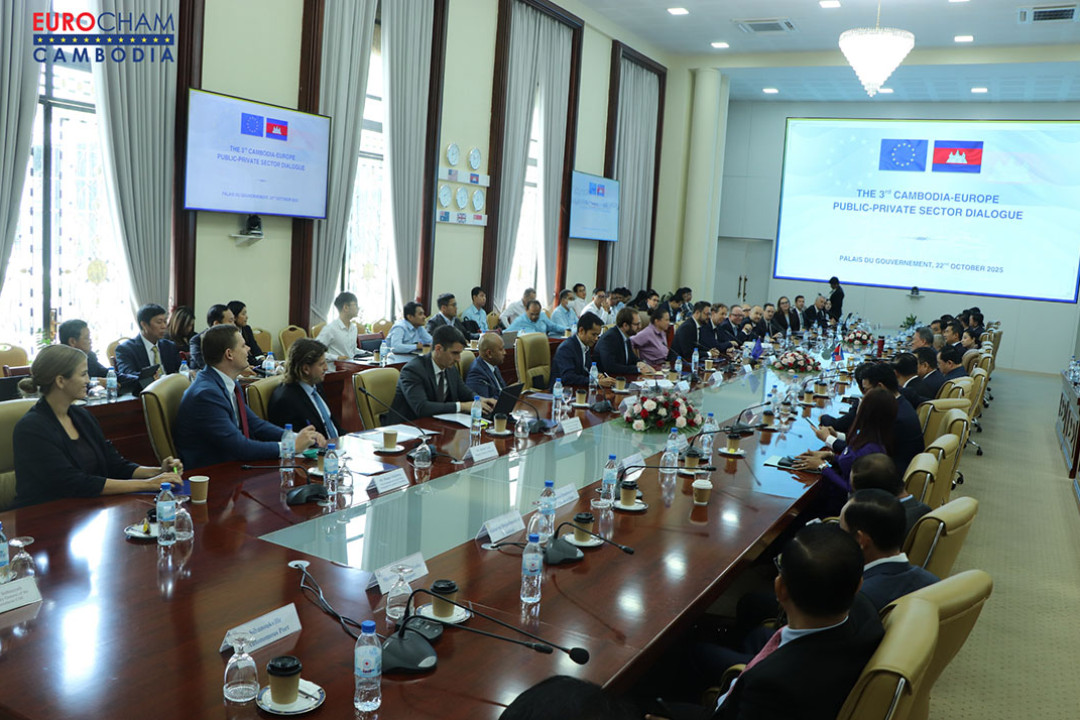
EuroCham Cambodia, in collaboration with the Council for the Development of Cambodia (CDC) and the Delegation of the European Union to Cambodia, successfully convened the 3rd Cambodia–Europe Public–Private Sector Dialogue (PPSD) at the CDC headquarters in Phnom Penh.
The event brought together high-level representatives from the Cambodian government, European ambassadors, and business leaders from the private sector to advance policy discussions on key areas shaping Cambodia’s investment climate, including infrastructure development, red tape reduction, logistics reform, green economy initiatives, as well as taxation and energy.
The session opened with remarks by H.E. Sun Chanthol, Deputy Prime Minister and First Vice-Chairman of the CDC, Gabriele Faja, Chairperson of EuroCham Cambodia, and Ambassador Igor Driesmans of the European Union Delegation in Cambodia.
In his opening statement, Faja reaffirmed EuroCham’s commitment to supporting Cambodia’s growth through actionable policy dialogue and partnership
“This platform represents more than discussion, rather a focus on tangible collaboration," he said. “By bringing the public and private sectors together, we can align on shared priorities that make Cambodia a more competitive and sustainable investment destination.”
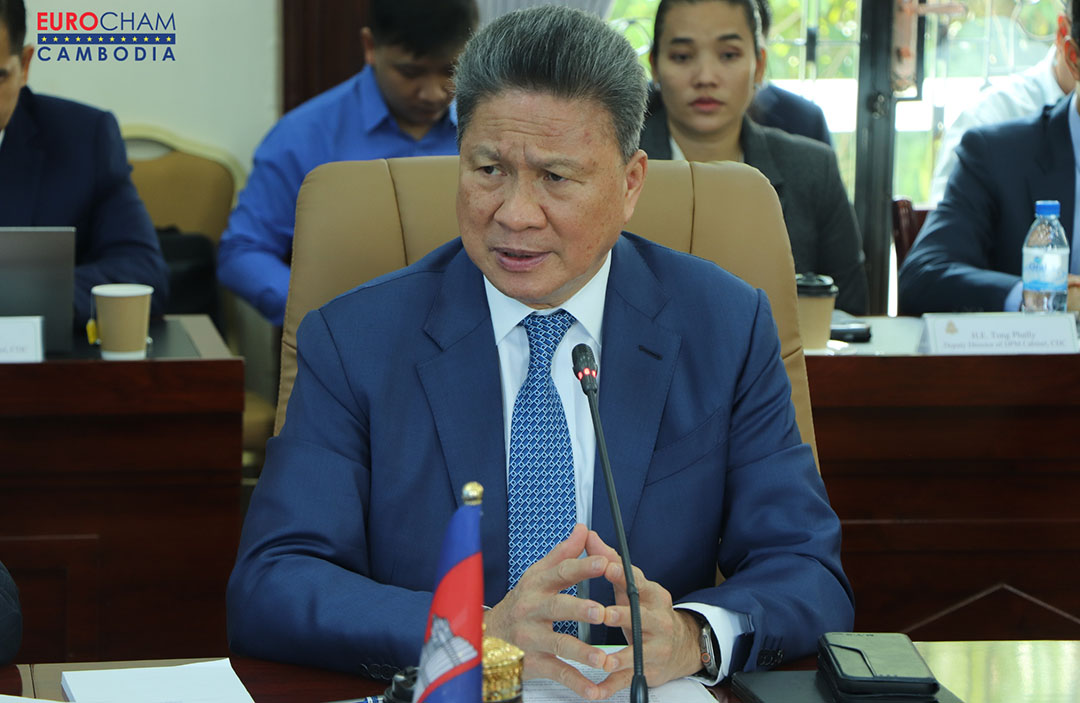
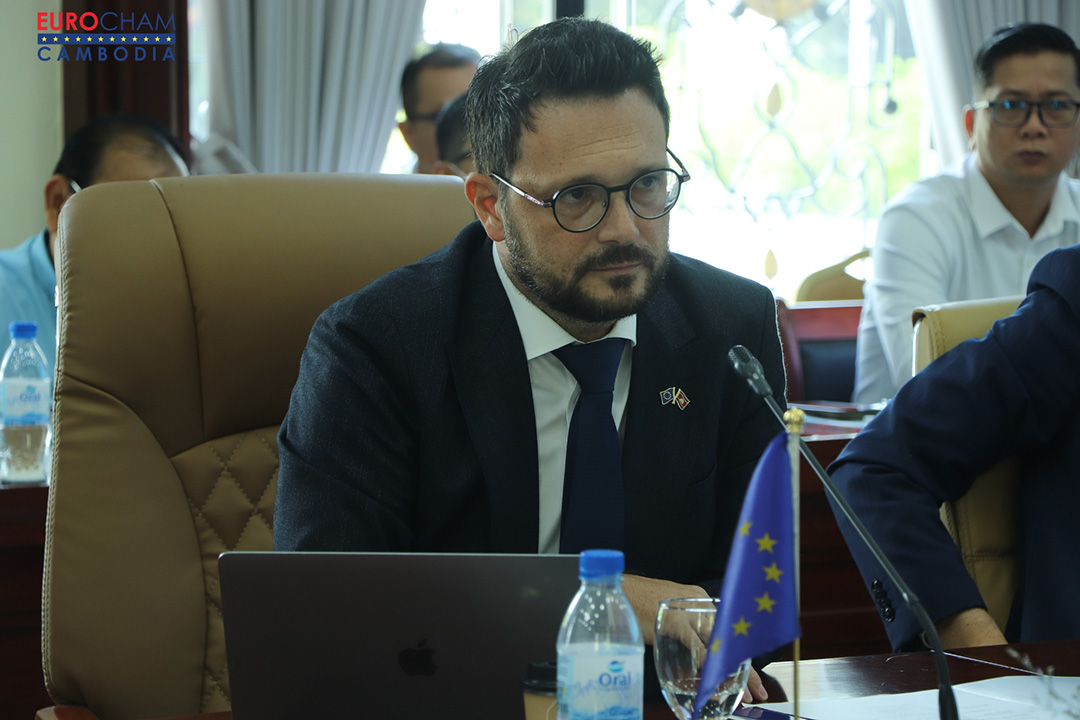
Driving Reform Through Partnership
The dialogue featured a robust agenda aimed at accelerating Cambodia’s reform agenda and strengthening EU–Cambodia economic cooperation.
Infrastructure Investment discussions focused on encouraging greater European participation in Cambodia’s infrastructure and public service projects. EuroCham proposed collaboration with the CDC to map government-prioritised projects and clarify investment procedures for Public-Private Partnerships (PPPs) and Unsolicited Project Proposals, ensuring greater transparency and accessibility for European investors.
In discussions, EuroCham raised the concept of a new initiative together with the CDC and line ministries, to look at the reduction of red tape in interactions between the private sector and public sector. The initiative would focus on practical, technical cooperation to streamline procedures and enhance efficiency, and will be developed jointly with the CDC and relevant line ministries.
The Sihanoukville Autonomous Port Policy Recommendation Paper presented actionable measures to improve logistics performance, including proposals for 24/7 customs gate operations and exploring incentives for increased use of the Phnom Penh–Sihanoukville Expressway to reduce port congestion.
Transport and Logistics Committee further showcased significant progress achieved through ongoing cooperation with the General Department of Customs and Excise (GDCE) on express logistics and air freight, including the elimination of redundant paperwork, improved clearance procedures, and productivity gains of nearly 50 per cent. New recommendations were also raised to streamline customs clearance under a “single entry” approach and enhance digitalisation of export processes.
In the Green Economy segment of the dialogue, EuroCham presented recommendations to improve regulatory conditions for textile recycling and Environmental Impact Assessment (EIA) processes. Discussions focused on incentivising investment in circular garment manufacturing and promoting a transparent, merit-based EIA system to reduce costs and improve investor confidence.
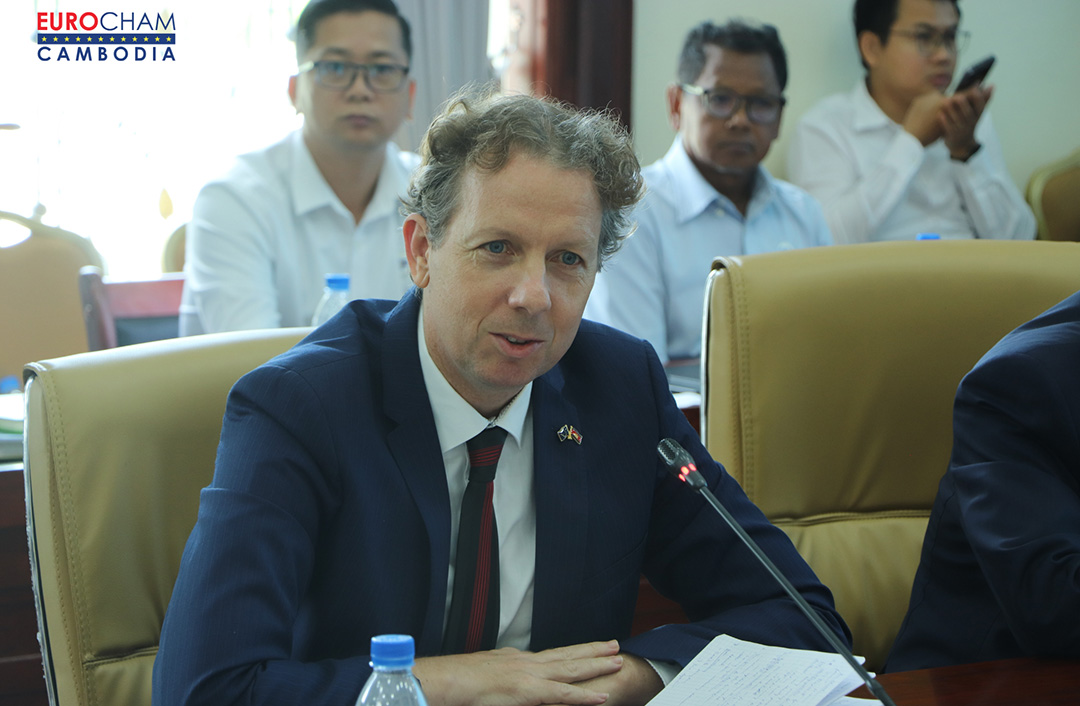
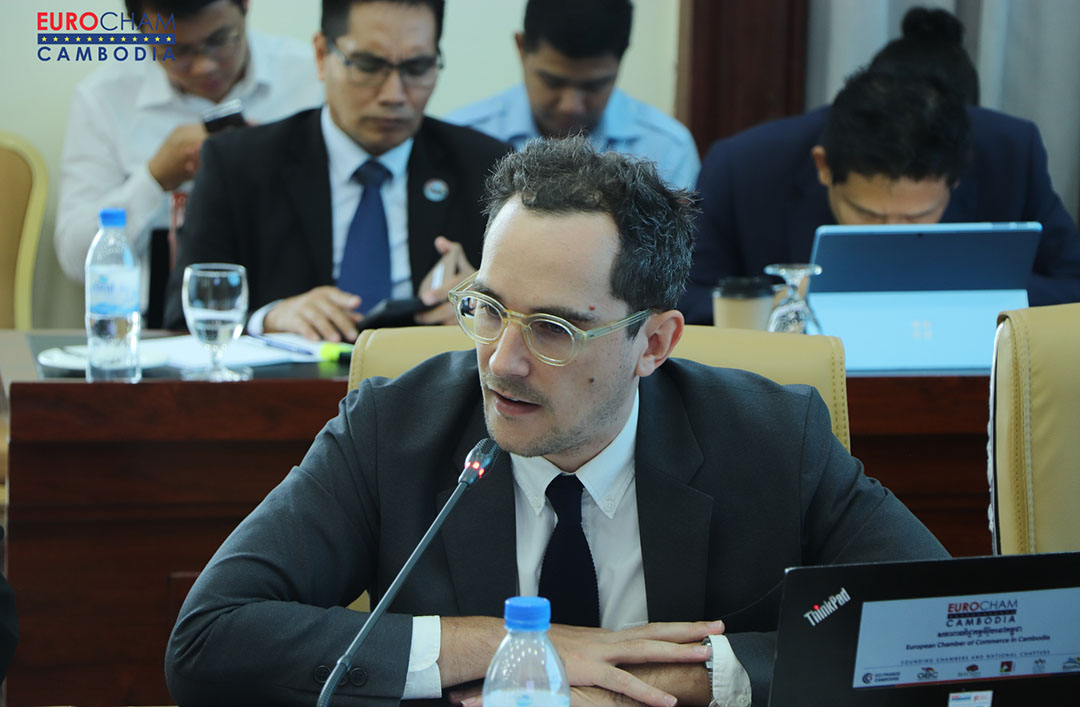
The Automotive Committee addressed the long-standing issue of defining “new vehicles,” calling for a harmonised national definition that creates fair competition between authorised distributors and grey importers. Here, the leadership of the MEF is working to align the definitions of GDCE and MOC on what is classified as a new car.
EuroCham commended the government's Special Tax Audit Unit for its modern and efficient approach to audits and the improved confidence it provides for the private sector. Martin Brisson, Executive Director of EuroCham Cambodia, also announced the launch of its new Taxation Committee, which will strengthen collaboration with the General Department of Taxation (GDT) to foster a more predictable and investor-friendly business environment.
Closing with a recap of unresolved issues, notably Renewable Energy Certificates and Rooftop Solar adoption, EuroCham proposed some new policy approaches to ensure European companies operating in Cambodia would still be able to reach their Net Zero targets by 2030.
The 3rd Cambodia–Europe Public–Private Sector Dialogue concluded with strong engagement from both sides and a renewed commitment to deepening collaboration ahead of the next round of discussions in 2026.
This press release was supplied.